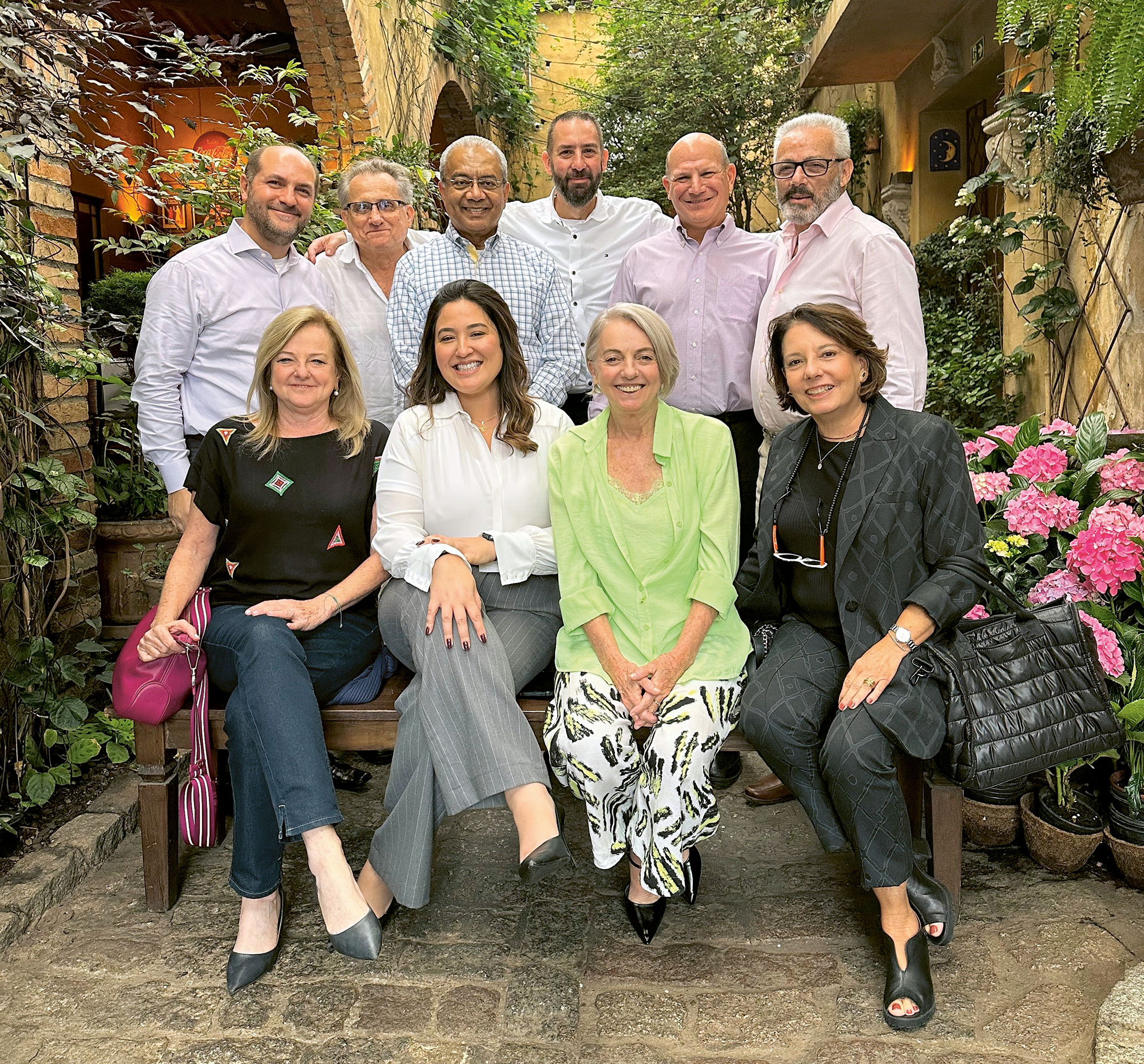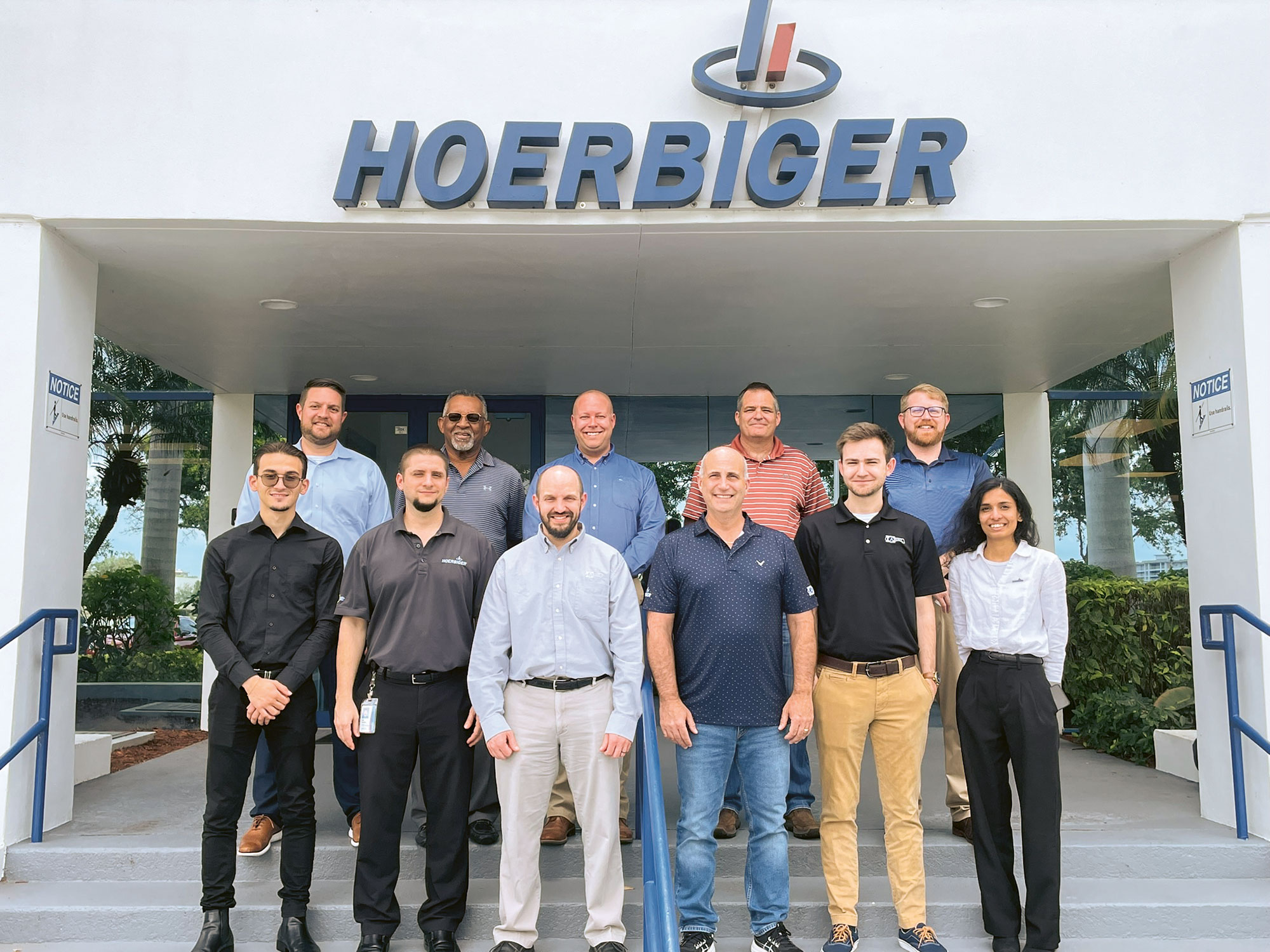Closeness – the underestimated success factor

In our digitally networked world, you might think that closeness is becoming less important in business. Physical closeness might seem to be a relic from a time when sales and service employees still had to travel to reach their customers.
The exact opposite is the case: companies that actively seek and cultivate closeness can achieve competitive advantages that go far beyond technological sophistication and cost efficiency, even in a globalized world. Physical closeness is not the only important factor here – people are the most important: The HOERBIGER employees who build partnership-based closeness and live it every day in their professional lives.
Customer proximity is a strategic necessity that enables companies to succeed in a highly competitive market environment. Direct contact with customers, an understanding of their needs and the ability to react quickly to changes are invaluable. Martina Hörbiger, the daughter-in-law of company founder Hanns Hörbiger, recognized this at a very early stage. At the beginning of the 1950s, when other up-and-coming medium-sized companies were concentrating primarily on the German-speaking or Central European market – it was the time of the “Wirtschaftswunder” (economic miracle) and sales were always assured – the far-sighted entrepreneur established contacts in Africa and shortly afterwards set up an own sales organization in North America. This was followed in 1963 by the founding of HOERBIGER Corporation of America and the establishment of its own production facilities in the USA.
HOERBIGER was also represented with its own locations in Asia very early on, starting in 1970. The focus was less on having a local business address but more on building a locally rooted team. This enabled HOERBIGER to quickly understand how these – at the time exotic – markets work.
Aware of this central relevance, “Closeness” was later incorporated into the Group’s strategy as a corporate value: “For HOERBIGER, Closeness means being close to customers worldwide – understanding their needs and requirements – and building long-term, stable relationships with suppliers,” emphasizes Dr. Martin Komischke, President of the Board of Directors. “At the same time, Closeness means that we work together closely and trustingly as Team HOERBIGER. We cultivate a culture of dialogue across hierarchies and organizational boundaries.”
"Closeness means that we work together closely and trustingly as Team HOERBIGER."
HOERBIGER Holding AG

Closeness within the team: regular events offer the opportunity for personal dialogue across hierarchical and organizational boundaries.
Flexibility through geographical closeness
In the mid-1990s, HOERBIGER opened a production plant in Shanghai and was therefore also years ahead of its competitors when it came to tapping into the Chinese market. A success story followed: the plant in Shanghai soon became too small. It was expanded several times in the following years, and another production hub for HOERBIGER in China followed in Changzhou. At the end of 2023, a new building was constructed there, enabling HOERBIGER to optimally support customers from other business segments locally.

Local for Local: at HOERBIGER, the Chinese market exemplifies local production and supply chains, culturally rooted local teams, and decentralized decision-making.
Production close to the customer and in partnership with local suppliers is an outstanding example of how geographical closeness can contribute to strengthening business relationships. This allows HOERBIGER to respond more quickly and flexibly to market requirements, reduce transportation costs and contribute to environmental protection at the same time. The concept proved another strength during the coronavirus pandemic: Regional supply chains proved to be much more resilient to disruptions. And while competitors with centralized service teams were often stuck at their home base due to travel restrictions, the HOERBIGER Group with its network of decentralized service locations was able to help its customers promptly and at any time.
HOERBIGER has now established a global network of 26 production sites and around 90 service locations in 43 countries, each tailored to the specific needs and requirements of the regional markets. This strategy makes it possible not only to increase customer satisfaction, but also to strengthen loyalty by perceiving HOERBIGER as a local partner.

Social closeness: HOERBIGER supports charitable work and local communities through its global network of locations.
Cultural closeness as key to trust
In addition to geographical closeness, the presence of local teams plays a decisive role. Teams that are rooted in the culture and traditions of their customers can build deep and trusting relationships. They understand not only the language, but also the subtle cultural nuances that often make the difference between a successful deal and a misunderstanding. Customers, in turn, feel understood and valued, which leads to greater loyalty and satisfaction. “HOERBIGER relies on locally rooted, strong teams with an entrepreneurial mindset,” says Dr. Thorsten Kahlert, CEO and Chairman of the Executive Board. “Only they can assess a market to unleash its potential. At HOERBIGER, the Group does not centrally determine how to work locally. The local people decide what to do on their own responsibility.”
"HOERBIGER relies on locally rooted, strong teams with an entrepreneurial mindset."
HOERBIGER Holding AG
This entrepreneurial freedom bears fruit time and again. For example, when long-standing, trusted business partners become colleagues during an acquisition: HOERBIGER has made three acquisitions in the last twelve months alone to expand its existing market presence and enter new business areas. The takeover processes are complex and require a high degree of trust. HOERBIGER can make a difference with long-standing relationships, intimacy and personality, where other companies send out anonymous M&A teams.

A prime example of closeness in the M&A environment: the acquisition of Minor Indústria Mecânica de Precisão Ltda.
Closeness to the market as a driver of innovation
Being in touch with the market is also a key success factor. Companies that operate close to the market can react more quickly and develop innovative solutions that meet the actual needs of their customers. This agility gives them a competitive advantage and strengthens their position. Every market works differently, so companies need to understand in detail what their customers really need and how these needs change over time. In HOERBIGER’s case, this requires in-depth technological knowledge and continuous monitoring of market developments.
Translated into products and services, market closeness and customer understanding are key drivers of innovation: When the HOERBIGER Group develops products, opens up markets or creates new business models, it is important to understand which solutions really offer customers added value and how these can be offered at competitive costs. Companies that operate close to their customers can identify trends and changes at an early stage and offer suitable solutions. One example is the current hydrogen boom. It began more or less overnight in 2021 – surprising even for proven experts. At HOERBIGER, almost all Divisions and Business Units can already offer promising, production-ready solutions for this emerging market.
Partnership-based closeness as a factor for stability
Finally, closeness refers to trusting partnerships. Because a genuine customer focus means that business partners can rely on HOERBIGER at all times and in the long term: Loyalty and joint growth mean that many business relationships and development partnerships have existed for more than half a century. Such long-term collaborations allow the companies to pool their resources and knowledge and jointly develop innovative solutions. Partnering up like this creates added value and stability for both sides and strengthens their market position.

Close partnership: at the Engineering Meeting in the USA, representatives from Ariel and HOERBIGER exchange ideas every six months.
A prime example of close partnership is the relationship with Ariel Corporation, Mount Vernon, Ohio. The partnership began in 1966 when Jim Buchwald, founder of Ariel, and Hubert Wagner of HOERBIGER Corporation of America started discussing how HOERBIGER could develop a valve to help Jim Buchwald realize his vision of a revolutionary, high-speed reciprocating compressor. Ariel and HOERBIGER have closely collaborated since.
In 2018, Ariel decided to equip all new compressors with HOERBIGER CP valves and, in 2021, the two companies started a joint development of a high pressure, non-lube compressor package for hydrogen refueling stations. Over nearly six decades of collaboration, Ariel has become the global market leader for natural gas compressors, while HOERBIGER has become the leading provider of performance-defining components and services for them.

Closeness between colleagues: at HOERBIGER, cooperation between Divisions and Business Units is encouraged and valued.
"Local for local" as a model for success
HOERBIGER calls the sum of local production and supply chain, culturally rooted local teams, decentralized decision- making, locally different customer approaches and trusting partnerships “Local for Local”. This principle is applied throughout the company worldwide and leads to a special closeness between HOERBIGER, suppliers and customers.
The Local for Local principle enables HOERBIGER to better adapt to local conditions, respond quickly and offer customized solutions that meet the specific needs of the market. With closeness in all its aspects, HOERBIGER employees repeatedly give their company the decisive advantage in global competition.